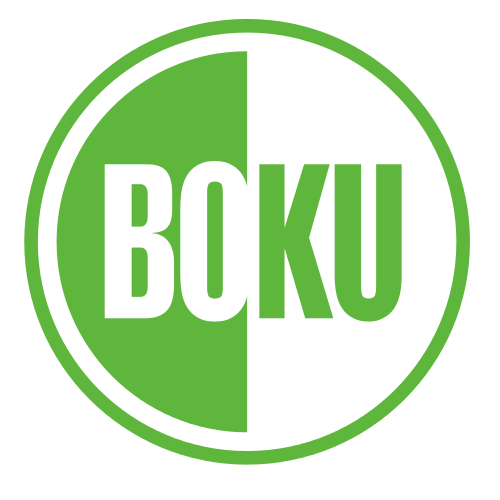 University of Natural Resources and Life Sciences, Vienna perceives itself as a teaching and research centre for renewable resources, which are necessary for human life. It is BOKU's objective to help make a considerable contribution to the conservation and protection of resources for future generations by providing diversity in its fields of study. Connecting natural sciences, engineering and economic sciences, we wish to increase knowledge of the ecologically and economically sustainable use of natural resources, to provide a harmoniously cultivated landscape. An important feature of BOKU's research lies in its recognition of future problems and our efforts to provide and stimulate practical relevance, internationality and among disciplines. Interdisciplinary cooperation of scientists on an international level should help create comprehensive questions about the future of our planet and lead to innovative problem-solving.
University of Natural Resources and Life Sciences, Vienna perceives itself as a teaching and research centre for renewable resources, which are necessary for human life. It is BOKU's objective to help make a considerable contribution to the conservation and protection of resources for future generations by providing diversity in its fields of study. Connecting natural sciences, engineering and economic sciences, we wish to increase knowledge of the ecologically and economically sustainable use of natural resources, to provide a harmoniously cultivated landscape. An important feature of BOKU's research lies in its recognition of future problems and our efforts to provide and stimulate practical relevance, internationality and among disciplines. Interdisciplinary cooperation of scientists on an international level should help create comprehensive questions about the future of our planet and lead to innovative problem-solving.
BOKU's teaching is designed holistically and in a coordinated manner. It leads graduates to knowledge, understanding and flexibility. From this program, they gain the willingness to face future challenges and the capability to meet them in a competent way. We teach the state of the art content and current issues that are based on dynamic research and a high level of practical relevance using modern didactic methods. This motivates students and graduates to develop their own ideas. Our cosmopolitan scientific vocational education and training enables them to understand complex interdisciplinary relationships.
In order to reach these objectives, cooperation that is based on mutual trust and flexibility is necessary. Whenever possible, those concerned are integrated into the decision-making processes, so that all BOKU members can identify with our university and its objectives. This also opens up the possibility for decentralized decision making, effective acting and the ability to respond to new challenges in a flexible manner.
For the public, BOKU is also a competent and self-conscious partner. It combines the willingness to accept criticism with the readiness to take the responsibility of taking a clear position. We at BOKU commit ourselves to international performance in research and teaching, cooperation on regional, national and international levels, and to receptiveness to new developments.
The Department of Materials Sciences and Process Engineering offers fundamental courses in physics, mechanical engineering, process engineering and renewable materials, supplemented by a wide range of specialized courses. Among, the Institute of Wood Technology and Renewable Materials is dealing with the material design and the processing of renewable resources towards bio-based and sustainable materials. Basic and applied research conducted within a wide range of disciplines constitutes the ambitions facilitating excellent teaching and student supervision. The institute sustains many corporations with industry, and other bodies with societal and economical relevance, all seen as contributions towards a forest-based bioeconomy. The Institute of Wood Technology and Renewable Materials holds currently three full professors, several associate professors and senior scientists. They are organized in six research groups, ranging from Natural fibre materials, wood utilization and tree-ring analysis, adhesive bonding, engineered wood products, wood technology to natural materials technology.
